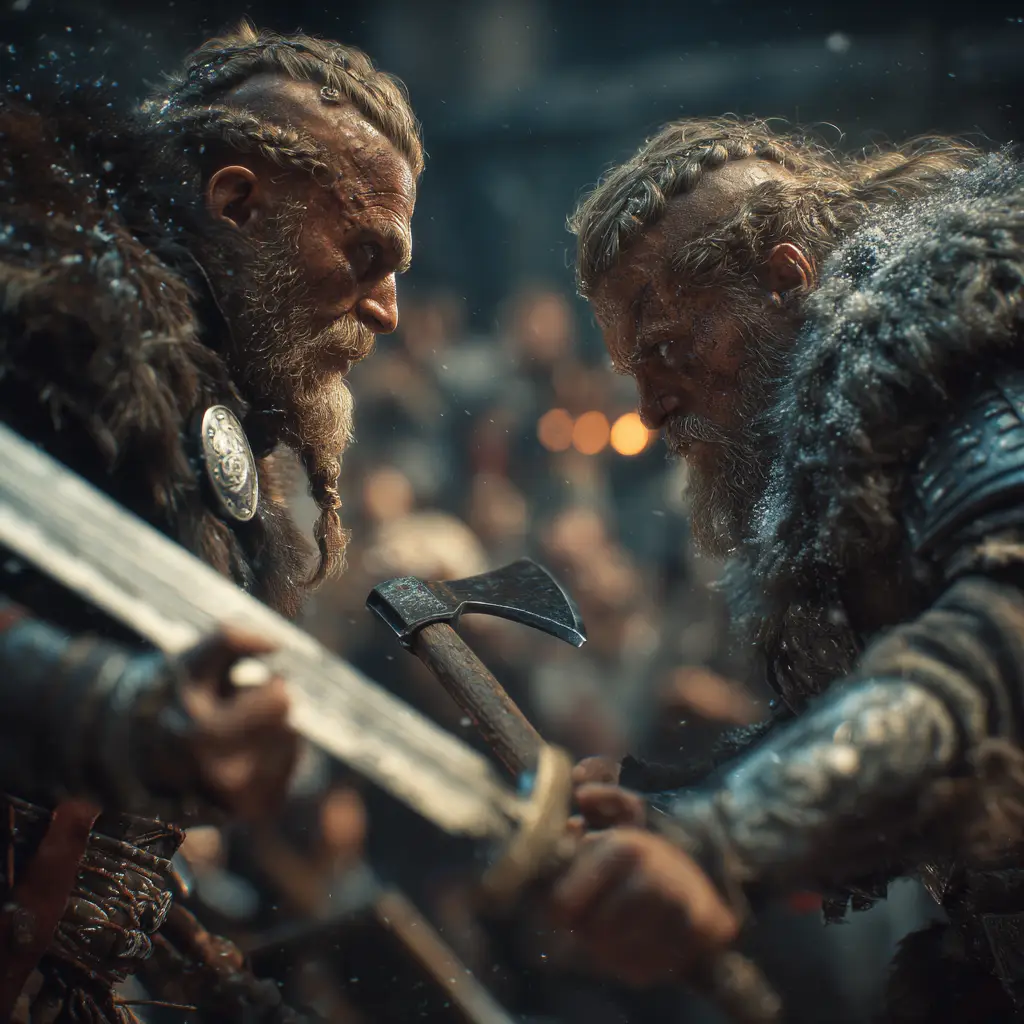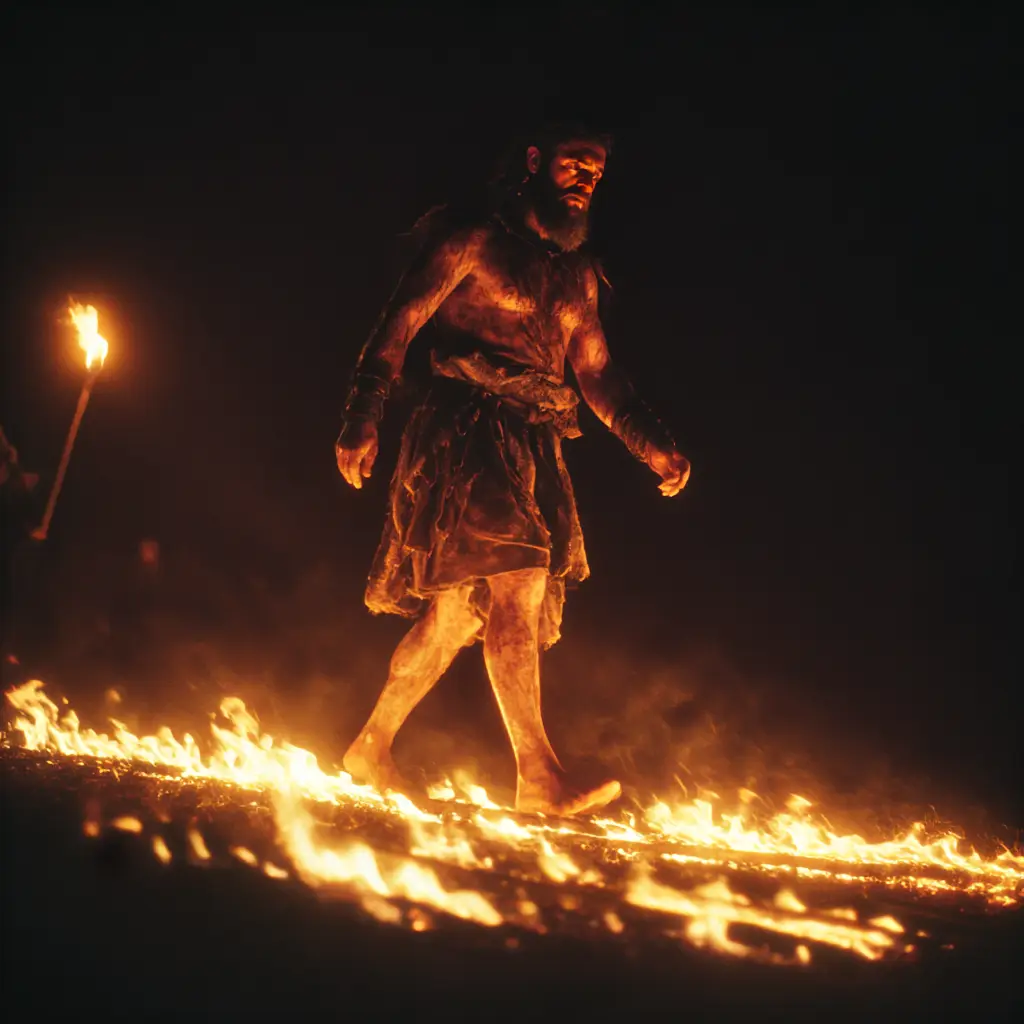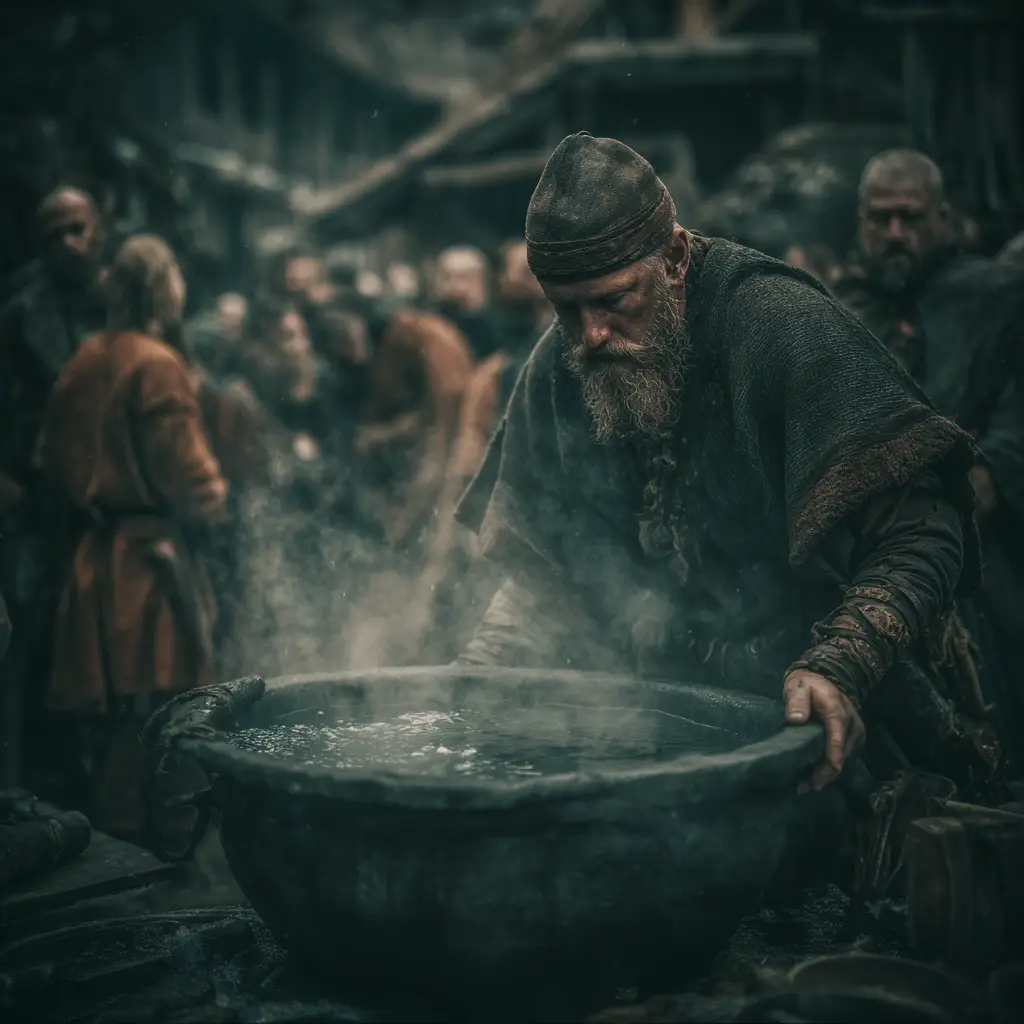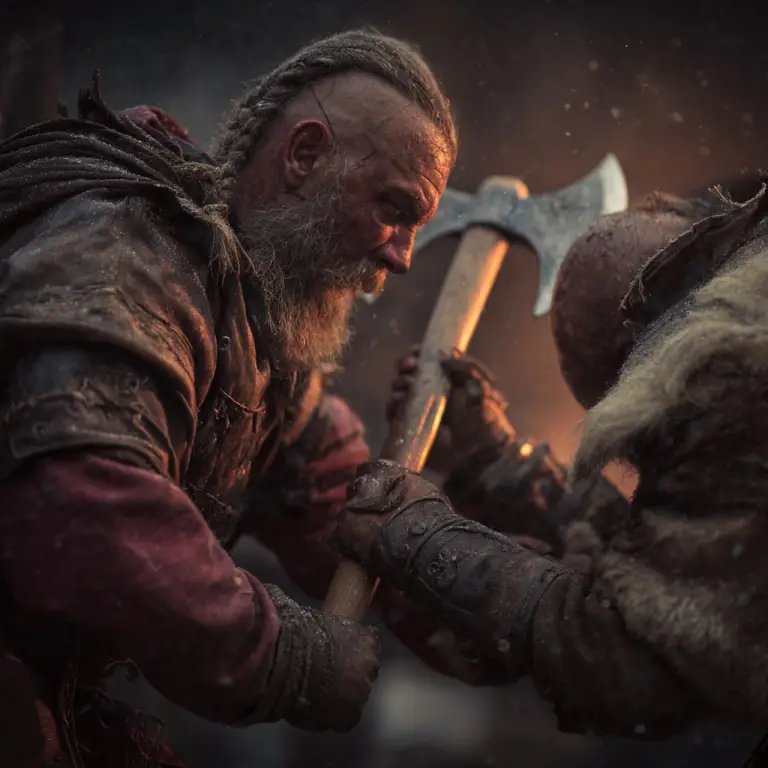In Viking society, resolving disputes was not always a matter of simple negotiation. If parties could not agree, and no witness or legal resolution was possible, ordeals were sometimes used as a way to let the gods decide the outcome. These physical trials were harsh, dangerous, and carried serious consequences. They served not only as a test of truth but also as a public spectacle, reinforcing honour and the social order.
One of the most common ordeals was trial by combat. This was not simply a fight to the death, but a structured duel governed by rules. It was believed that the gods would grant victory to the one in the right. In some cases, the dispute might be settled if one party surrendered or was disarmed. Though it was brutal, this form of ordeal had deep roots in the Viking sense of justice and honour.
Another ordeal was the ordeal by boiling water. The accused would plunge a hand into a cauldron of boiling water to retrieve a stone or iron object. The hand would then be bound and inspected after several days. If the wound was healing cleanly, the gods were seen to have judged them innocent. If the wound was festering, guilt was assumed. This method was overseen by a lawspeaker or respected elder to ensure fairness.
Ordeal by fire was also used, though more rarely. This might involve walking over hot ploughshares or holding red-hot iron. The outcome, again, was judged by the healing of the wounds. These acts were not undertaken lightly. They required a level of spiritual conviction and societal pressure that gave weight to the decision, regardless of its brutality.
Viking ordeals were not random cruelty. They were part of a belief system that saw fate, the gods, and personal honour as guiding forces. In the absence of written contracts and formal courts, such ordeals provided a way—however dangerous—to reach a final decision and bring an end to conflict.



